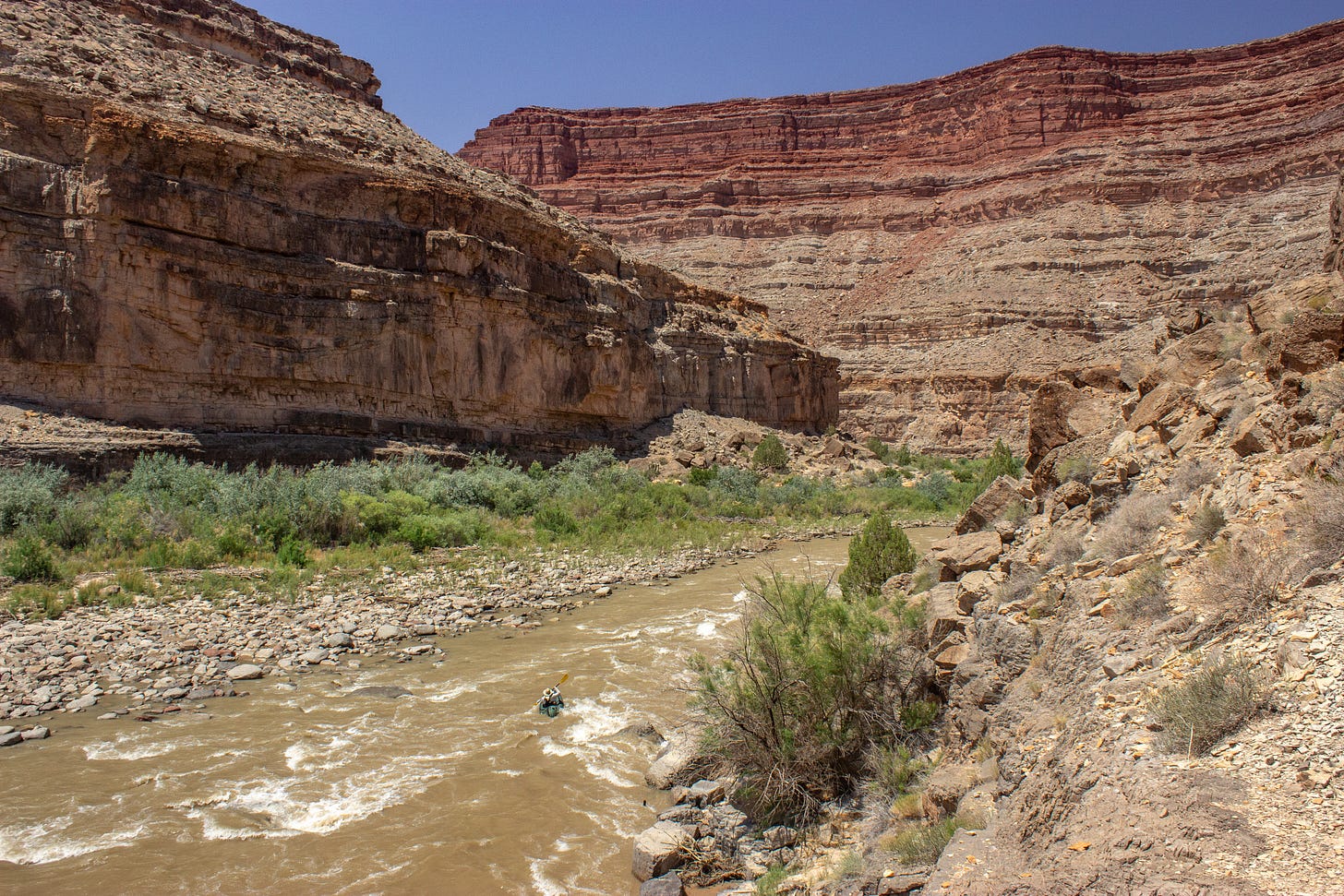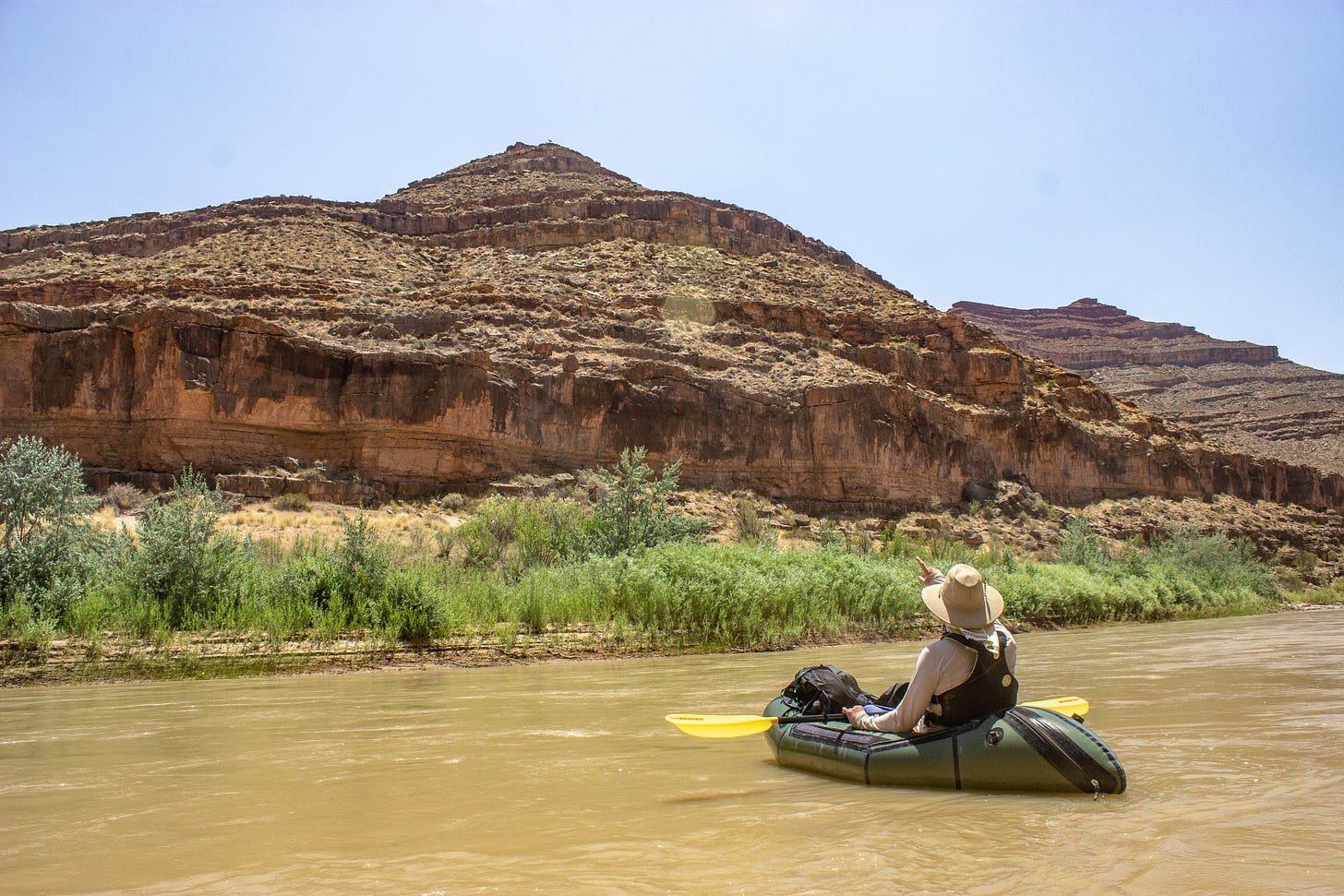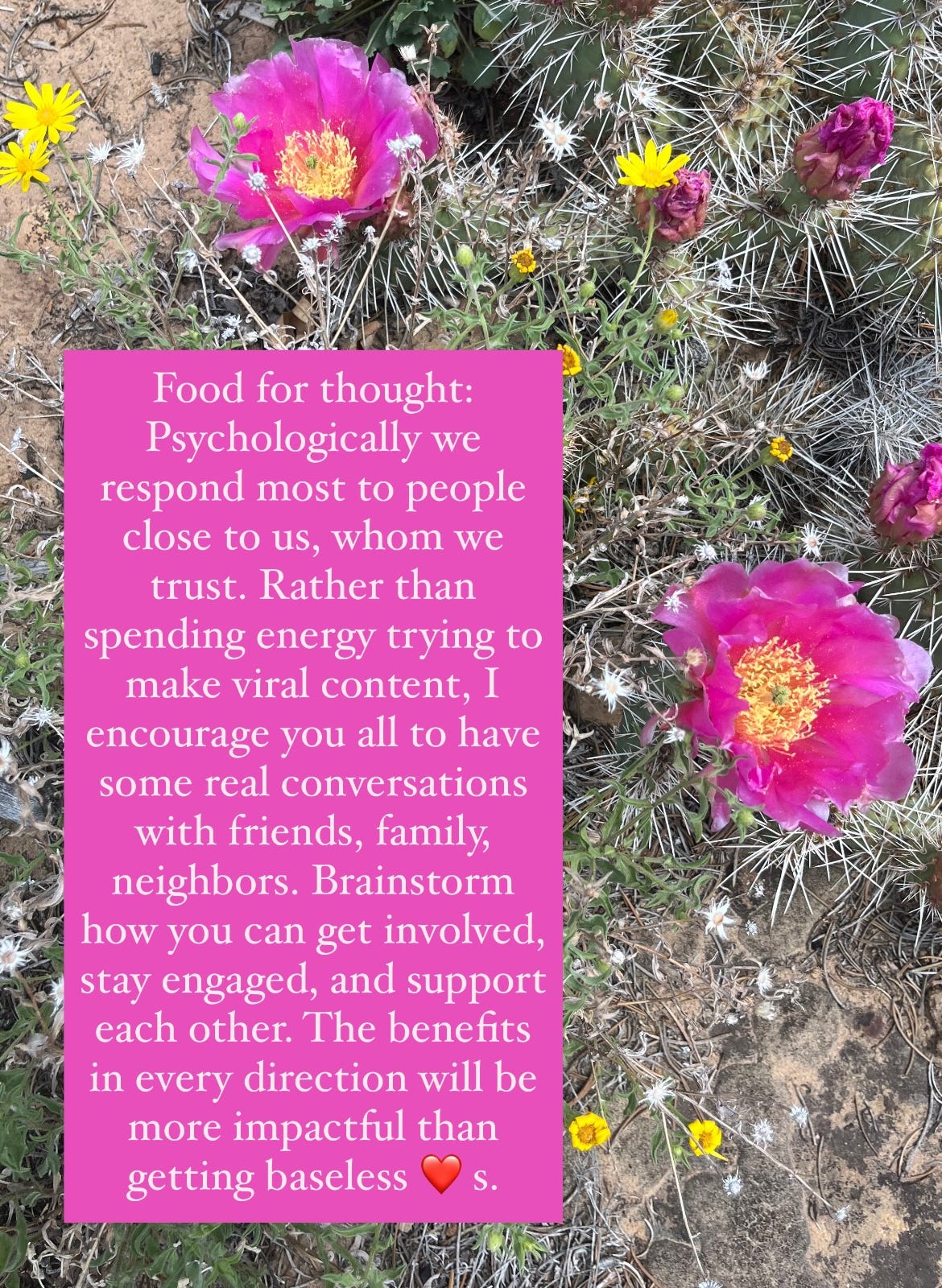I back-paddled the chocolate brown current to slow my little blue packraft. Maybe I could accidentally drift past the takeout? After less than 48 hours on the river leaving felt cruel. A pang of dread caressed my innards. River runners describe this as “re-entry” when returning from an extended period of time in the backcountry or on the water. It is most commonly used at the end of 21+ day Grand Canyon river trips.
Lately, I experience bouts of re-entry every day.
I wake up at night and remember that current events are more frightening than my nightmares. Or when I am typing a sentence for a reporting assignment, and the situation worsens before I can plop down punctuation. I take a walk for fresh air and inhale smoke from three wildfires surrounding canyon country. Within a mile, I walk past a public land parcel that would be included in Senator Mike Lee’s nefarious amendment to the Big Bullshit Bill. Then, I call my representative about all of this and I am connected to Mike Lee’s voicemail. Yesterday, I planned to turn down a happy hour invite to write and reluctantly clean sand off my river gear. When I picked up my phone I saw the U.S. was at war and changed my mind.
Is re-entry possible when there is no escape? I think not. The pervasive ripple effects of EVERYTHING are at front of mind. Philosophically this feels important. Practically, this reality is being administered in doses more potent, evil, repetitive, and at a greater speed than any of us can comprehend, let alone bear. The distortion effect makes it difficult to reach a consensus on just how bad it is. Our cognitive dissonance increases because of hypernormalization: the world is falling apart, but you are safe at home or gazing out at a great blue heron soaring over the water.
Checking out is next to impossible. Staying engaged is critical. Is there a way to balance the two? That is, spending the next four years (or forever) glued to a screen to see or post about the latest updates is as unsustainable as pulling an Everett Ruess. Our participation in democracy, from protests and contacting representatives, is crucial, but it is far from healthy, or possible, to spend all day every day doing only that.
So, I pursue micro-bursts, in reference to monsoonal storms, not military action, of activities that take action, soothe my weary nervous system, build connections, and help support other people.
After writing or calling my representatives, I take a break and walk around town and chat with community members and friends. Many of us work in fields related to public land protection or recreation/tourism. The toll on all of our mental health is real. I am amazed at the pent-up worries people share when simply asked, “How are you doing?” Talking only briefly reminds each of us that we are not alone in these existential feelings.
Weekend backcountry and river outings are non-negotiable parts of my week. I requested my next reporting deadline accommodate this. It is essential to surround myself with the threatened landscapes that I write about and to experience joy as an antidote to despair.1 It is the fuel to keep floating into such daunting waters.
To hear the faint sound of oars in the silence as a rowboat
comes slowly out and then goes back is truly worth
all the years of sorrow that are to come.–– “A Brief for the Defense,” Jack Gilbert
On this recent trip, long stretches passed without saying or thinking much about anything. I observed the flow of the water, listened to bird songs, and drank water (and cerveza). Perhaps that is a trauma response, but I suppose that is a meditation too. My overwhelmed brain knows how to release and give me a break. What a biological gift.
The recognition that what is happening––all of it––is something the planet is collectively moving through is terrifying. But that reminder of the deep connection, between species, landscapes, earth, wind, and water is powerful, strengthening, enlivening. Our ego-driven human brains may want to run for the hills to save ourselves. But what is a collared lizard or a desert big horn sheep going to do about it? Live, of course. We must too.
A little time on the river reminded me how essential it is to tap into our wild brain. To give ourselves permission to suspend analysis, scrolling, planning, or small talk even for a moment. To let watching the wonder of fluffy white cottonwood seeds wafting past in a warm breeze be enough. And then turn to a friend, be it a human or a flower, and sincerely ask, “How are you?”
The world needs us. We need each other.
A few weeks ago, I spoke with Blake Boles the host of "the “Dirtbag Rich” podcast. At first, I had questions about what a podcast with such a name leaned toward. Boles shared his philosophical quest to discuss sustaining alternative lifestyles and careers with adults in it for the long haul. I was all in. The show features several people I have crossed paths with because of the so-called “dirtbag” lifestyle. It’s worth tuning into as unchecked capitalism makes basic living essentials difficult even for working professionals to attain.
Our conversation ends on a note that resonates with everything I strive to share here at Wild Words: “She explains why she feels called to advocate for public lands through her writing, and how the desert has repeatedly shown her that even in apparent solitude, she is never truly alone. For Morgan, being “dirtbag rich” means having clean water, clean air, healthy ecosystems, and places that are open and welcoming to all people.” Listen to the full interview here:
Joy Sullivan wrote a resonant essay about this that quoted “A Brief for the Defense,” a poem by Jack Gilbert:
“If we deny our happiness, resist our satisfaction,
we lessen the importance of their deprivation.
We must risk delight. We can do without pleasure,
but not delight. Not enjoyment. We must have
the stubbornness to accept our gladness in the ruthless
furnace of this world.”
Yes.







